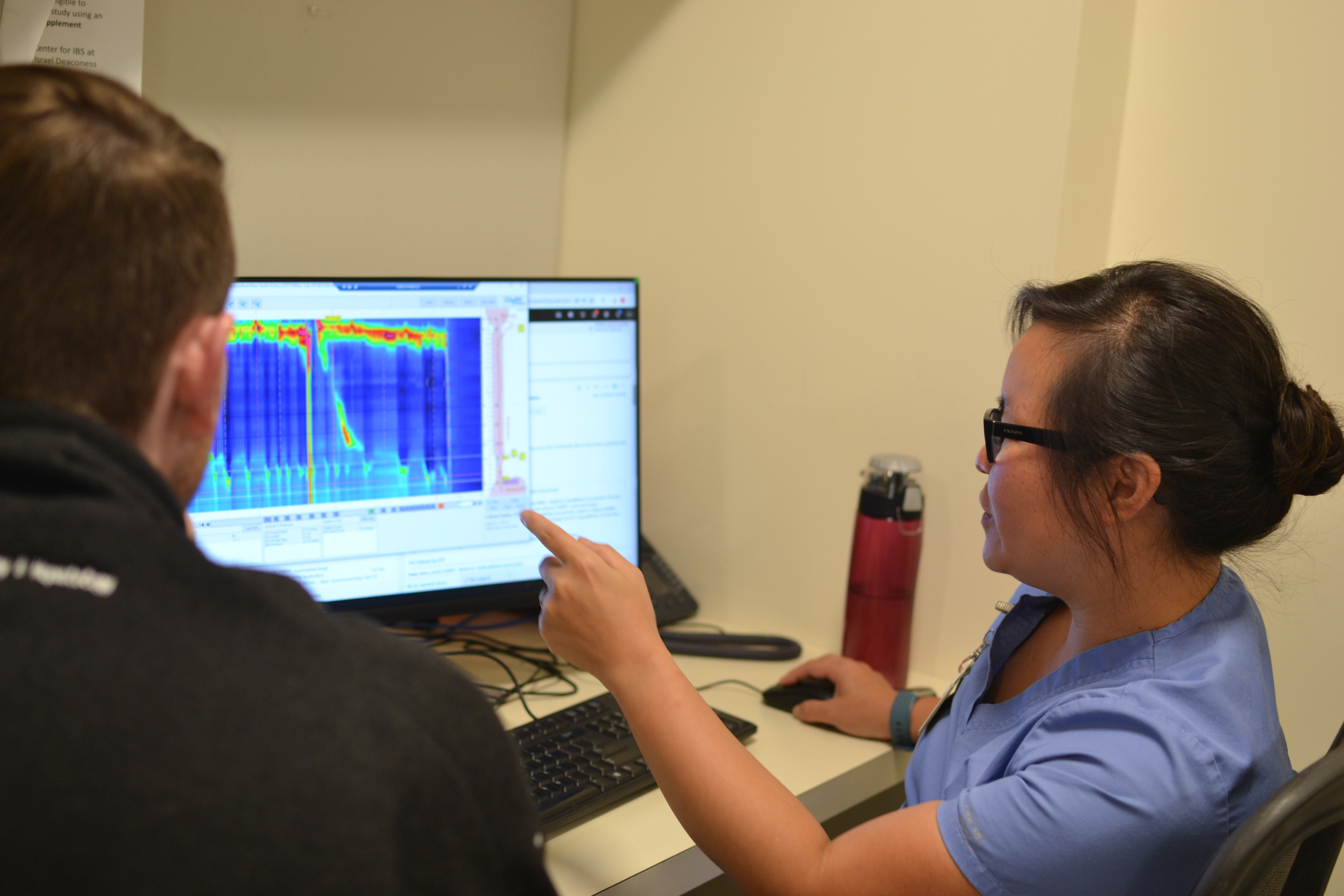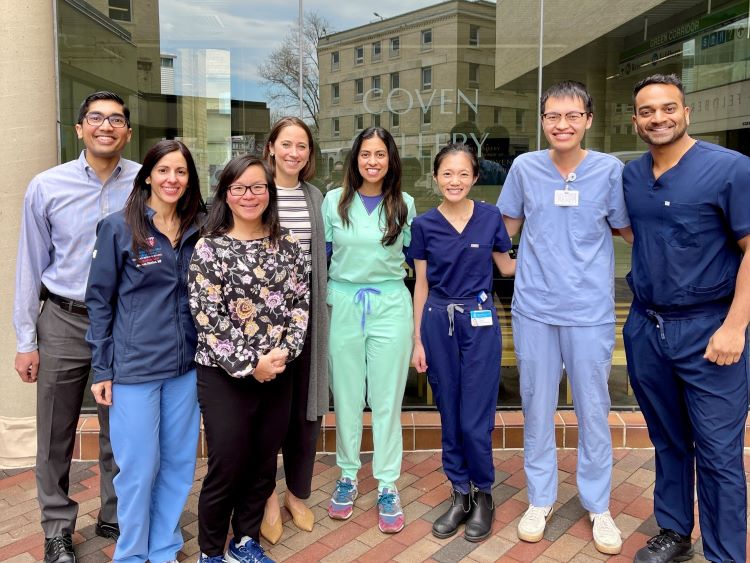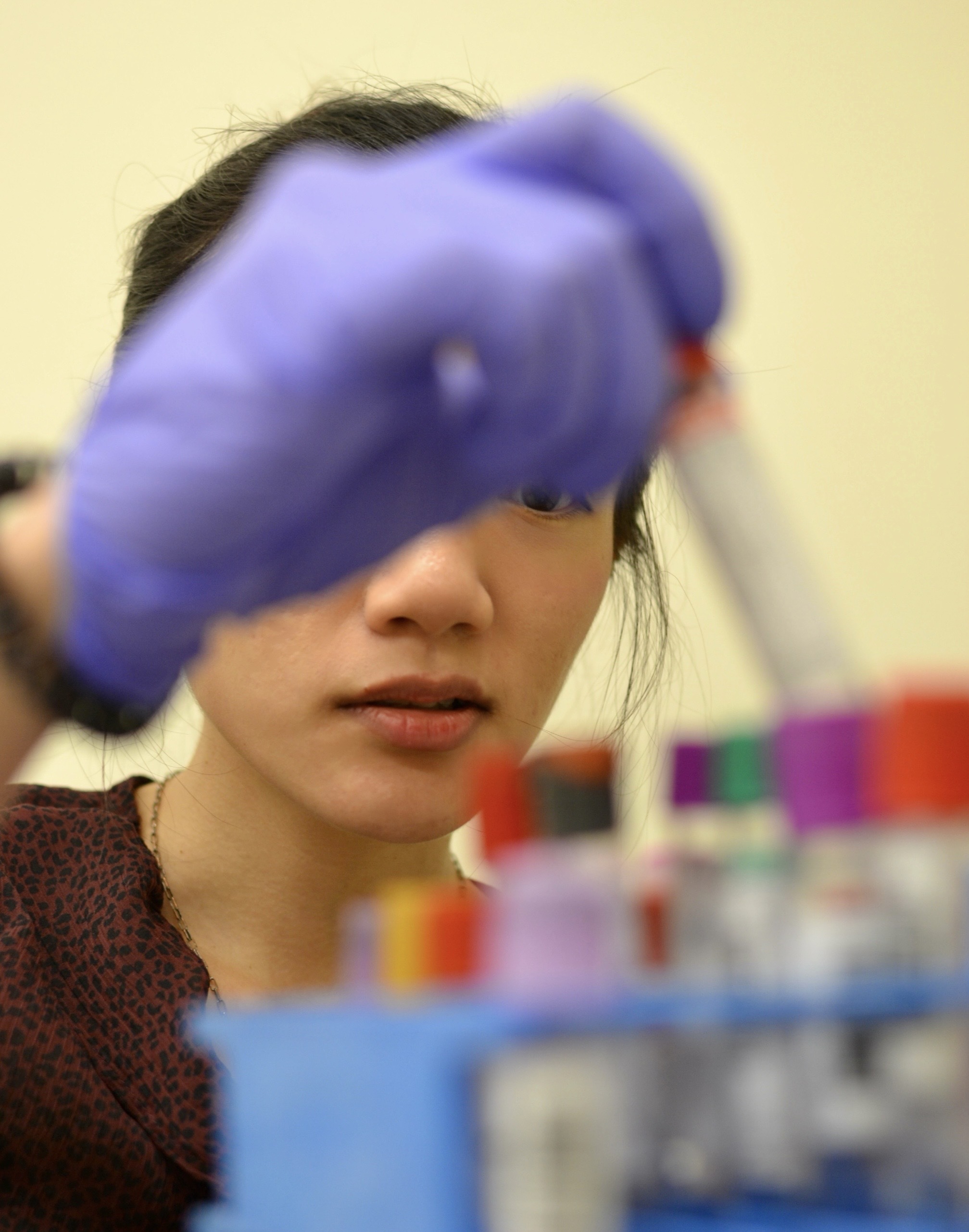About
The BIDMC Institute for Gut-Brain Research
Patients are the center of everything we do.
A message from the Director of Clinical Research, Dr. Trisha Pasricha:
Welcome! The BIDMC Institute for Gut-Brain Research comprises a highly motivated group of scientists with expertise in enteric neuroscience, gastroenterology, psychology, epidemiology, biostatistics, and clinical trials with one goal: to help our patients.
Our research group is committed to helping ensure that one day no patient is made to feel that their symptoms are "all in their heads." Over the years, our studies have helped transform the way we think about the enteric nervous system and treat diseases like irritable bowel syndrome.
Housed within the Institute for Gut-Brain Research is an exciting collaboration between the clinical and basic scientists in the Division of Gastroenterology at BIDMC, the Movement Disorders Division in the Department of Neurology at BIDMC, and the Marcus Center for Aging Research at Harvard Medical School. We have established a specialized Parkinson's Disease Gastrointestinal Clinic, and our scientists conduct multi-omic and mechanistic studies in Parkinson's disease, the aging enteric nervous system, and other neurogastrointestinal disorders.



The Institute for Gut-Brain Research at BIDMC
Patients are at the center of everything we do in the Beth Israel Deaconess Medical Center Institute for Gut-Brain Research. Thanks to the participation of our patients, we are making breakthroughs and discovering new insights that can impact people from diseases like irritable bowel syndrome, Parkinson’s disease, and gastroparesis around the world.
We are grateful to you, our patients, for entrusting us to learn from your experiences and helping advance science.
Research Area
Neurogastrointestinal disorders
The BIDMC Institute for Gut-Brain Research is committed to serving patients with a variety of disorders of gut-brain interaction. We have ongoing clinical studies in the following disease areas:
- Irritable bowel syndrome
- Functional bloating
- Gastroparesis
- Cyclic Vomiting Syndrome
- Cannabinoid hyperemesis syndrome
- Pelvic floor dysfunction
Examples of some of our active clinical studies include:
- Treatment of "leaky gut:" Some patients with irritable bowel syndrome (diarrhea predominant) have increased intestinal permeability, which some refer to as a “leaky gut.” This four-week study assesses the effect of an over-the-counter supplement, glutamine, a naturally produced amino acid, to improve leaky gut and GI symptoms.
- Home remedy for nausea/vomiting study: Some patients who experience nausea/vomiting may feel symptom improvement after ingesting foods. This study assesses a popular home remedy in improving acute symptoms of nausea/vomiting in patients who suffer chronically from these symptoms (including, but not limited to, patients with gastroparesis, cyclic vomiting syndrome, and cannabinoid hyperemesis). If you are interested, you will undergo a study treatment period of 14 days and fill out daily questionnaires about your GI health.
- Study about why we experience bloating: Some patients who frequently experience bloating may have abnormalities related to their diaphragm (the muscle beneath the lungs and above the belly). This study assesses the lung changes that may occur when patients feel bloated and short of breath. You will complete some questions about your GI and overall health and undergo 2 chest X-rays.
If you are interested in learning more or participating in any of the research studies, please feel free to email us at GIMotilityResearch@caregroup.harvard.edu.
Research Area
Parkinson's disease
A growing body of literature suggests that in a subset of patients, Parkinson's disease may originate in the gut. The Pasricha lab has demonstrated that certain gastrointestinal symptoms, such as difficulty swallowing or constipation, can predict the onset of Parkinson's disease, sometimes more than a decade before motor symptoms develop. We have a robust clinical registry and biorepository of patients with Parkinson's disease and gastrointestinal symptoms that we are grateful to use to better understand disease pathogenesis.

